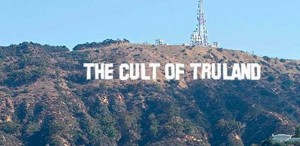In the battle for eyeballs and clicks, the growth of celebrity media is forcing traditional media to re-evaluate their business plans and news strategies. From coverage of big stories to the battle for TV ratings, the new breed of media is changing the news competition, San Diego media experts agreed during a recent panel discussion, “Journalism in the Post-Kardashian Era.”
Co-sponsored by the San Diego Press Club and Pt. Loma Nazarene University’s journalism program, the panel discussion focused on the day-to-day implications of the popularity of the vast number of popular new media outlets—TMZ, Buzzfeed, Radar, Inside Edition, OK TV, et al–competing for the attention of the news audience.

“Celebrity journalism is not new; it’s the volume and intensity of organizations chasing the audience,” said panel moderator Kevin Brass, the former media critic for the San Diego edition of the Los Angeles Times and author of “The Cult of Truland,” a novel set in the world of celebrity journalism.
The panel included Tiffani Lupenski, news director of KGTV (Channel 10); Lt. Scott Wahl, public information officer of the San Diego Police Department; Tom Mallory, online editor of the San Diego Union-Tribune; Gene Cubbison, a reporter with KNSD-TV (NBC7); and Irene McCormack, a crisis communications specialist who was thrust into the national media spotlight when she was the first to come forward with sexual harassment charges against former Mayor Bob Filner.
Ms. McCormack’s story generated a lengthy discussion, as she shared her stories of what it was like to be chased and investigated by the tabloids. She hired Gloria Allred, who acted like a shield. Ms. McCormack’s advice to anybody in that situation–don’t talk to the media; get someone to speak for you.
The fast flow of information—and incorrect information—may lead to more restrictions on the availability of information, Lt. Wahl warned. Social media may ultimately spark efforts to tighten controls on records, which would be unfortunate, he said.
Competition forces news executives to make tough decisions, Ms. Lupenski noted. Asked when a celebrity story is news and when it is not, she emphasized there is no set answer. She often holds newsroom discussions to debate stories. But audiences are interested in celebrity news, especially in Southern California, and that must be taken into account, she says.

With the competition intensifying online, the San Diego Union-Tribune’s web product is much different than the print edition, Mr. Mallory said. His competition is Buzzfeed, Facebook and every other online entity hoping to attract readers. But the sensational celebrity stories don’t work as well for the local site as original feature stories produced by the newspaper’s staff, he said.
Mr. Cubbison from NBC7 offered a list of the many big national stories he’d covered over the years, from the McDonald’s massacre in San Ysidro to O.J. The tabloids and celebrity news organizations are often pursuing the same stories, but they take a different approach than traditional news organizations, he said. In cases like Ms. McCormack’s story, the difference is often “basic humanity,” he said.










